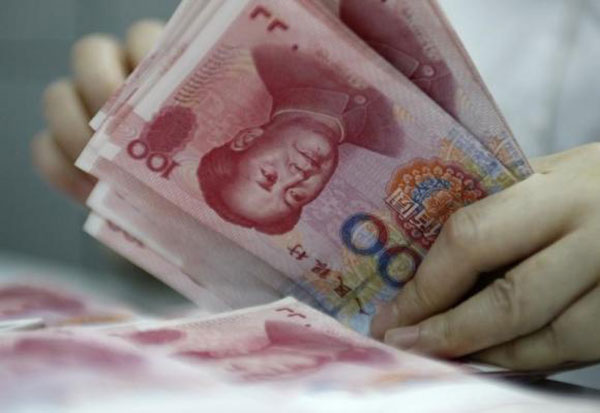

The IMF staff and management have recommended including the yuan in the Special Drawing Right (SDR) and it is very likely that the IMF Board will accept the recommendation at its scheduled meeting on November 30. To understand the significance of this decision it is important to keep four things in mind.

First, adding the yuan to the IMF’s currency basket indicates that the existing financial architecture can adjust to the economic rise of China and other emerging markets. The world has changed enormously since the Bretton Woods system was founded. Developing countries now make up about half the world economy. So institutions like the IMF need to change in order to stay relevant in today’s world. For a long time the SDR has consisted of four currencies: dollar, euro, yen, and pound. Now the Chinese yuan will join the basket. Of course other changes are needed as well, notably a shift of quota shares in the IMF towards the fast-growing developing economies. But this currency development shows that major reform is possible within the existing system.
Second, the inclusion of the yuan should be seen as an opportunity but not a guarantee that the Chinese currency will become a major reserve currency. The direct effect of inclusion is in fact small. IMF loans in the future will be partly disbursed in yuan, which is significant. But investors around the world will not automatically rebalance their portfolios because the yuan is now part of the SDR. Investors are more likely to take a look at the yuan, but investment decisions will be largely based on the reliability of yuan assets and prospective returns. There will not be a sudden big shift towards the yuan because of inclusion in the SDR.
Third, in the long run the attractiveness of yuan assets will depend to a large extent on the strength of the Chinese economy. After a long period of double-digit growth China is now facing a difficult transition to a new growth model that will depend less on very high rates of investment and more on productivity growth, especially in sectors that have lagged such as modern services. The 13th Five-Year Plan is an opportunity to move on needed reforms such as opening service sectors to international competition – that would apply to financial services, telecom, logistics, media, and healthcare, among others. Freeing up labor mobility through phase-out of the hukou system would also spur productivity growth and raise household income and consumption.
Fourth, completing the reform of the financial system would bolster growth and also directly contribute to the continued internationalization of the yuan. In holding foreign assets investors are influenced by the transparency and depth of capital markets. Government plans include moving to a system whereby firms that meet standards can go to the capital markets without needing government approvals. This would encourage more private firms – including eventually foreign firms—to list on Chinese markets.
There is still a significant agenda of economic and financial reform in China. Vigorously pursuing that agenda is in China’s interest, and will also have spillover benefits for the rest of world by spurring trade and investment and by further internationalization of the RMB. Historians may well look back and view this decision to include the yuan in the SDR as a milestone in China’s reform and opening up.

David Dollar
David Dollar is a Senior Fellow at the China Center of Brookings Institution. From 2009 to 2013, Dollar was the U.S. Treasury Department's economic and financial emissary to China. Previously, he worked at the World Bank for more than 20 years, serving as country director for China and Mongolia from 2004 to 2009.
Views and opinions expressed in this article are all those of the author.
 Contestants of Mrs. Globe pose for photo in Shenzhen
Contestants of Mrs. Globe pose for photo in Shenzhen
 Bikini models attend hot pot banquet in Hefei
Bikini models attend hot pot banquet in Hefei J-10B fighters with homegrown engine in test fligh
J-10B fighters with homegrown engine in test fligh Photos of U.S. Navy intruding in South China Sea released
Photos of U.S. Navy intruding in South China Sea released Cats who immediately regretted their life choices in photographs
Cats who immediately regretted their life choices in photographs Beautiful girl from police college becomes Internet hit
Beautiful girl from police college becomes Internet hit 10 tons of copper coins unearthed in 2,000-yr old tomb
10 tons of copper coins unearthed in 2,000-yr old tomb In Pics: Amazing Chinese fighters
In Pics: Amazing Chinese fighters
 Chinese, U.S. navies hold first-ever joint exercise in the Atlantic
Chinese, U.S. navies hold first-ever joint exercise in the Atlantic Top 20 hottest women in the world in 2014
Top 20 hottest women in the world in 2014 Top 10 hardest languages to learn
Top 10 hardest languages to learn 10 Chinese female stars with most beautiful faces
10 Chinese female stars with most beautiful faces China’s Top 10 Unique Bridges, Highways and Roads
China’s Top 10 Unique Bridges, Highways and Roads Sun seekers
Sun seekers Sex toy industry lacks govt oversight
Sex toy industry lacks govt oversight Military reform matches China’s evolution
Military reform matches China’s evolution Genetically engineered fish gets US FDA stamp of approval
Genetically engineered fish gets US FDA stamp of approvalDay|Week